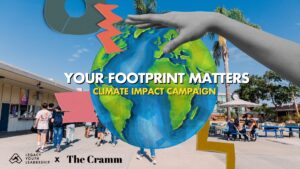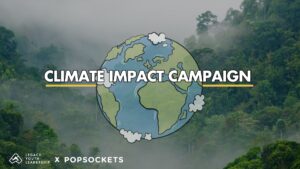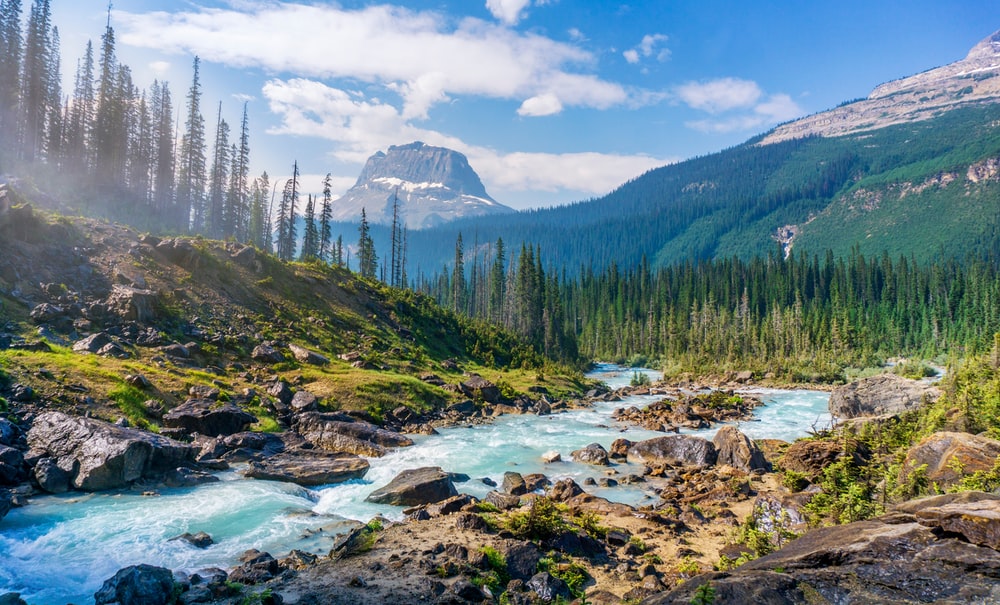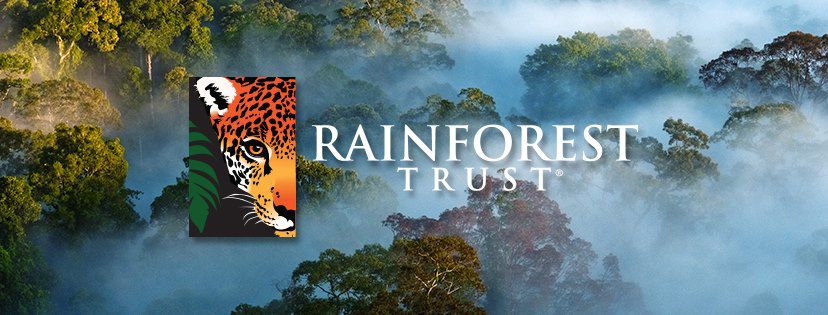ABOUT CLIMATE CHANGE
Simply put, climate change is defined as the long-term alteration of temperature and typical weather patterns in a place but our human impact on our climate has been undeniable in modern times. Trees and other plants, like all living things, are made up of carbon but when forests are cleared or burned, much of that carbon ends up in the atmosphere — similar to burning fossil fuels. This carbon changes the planet’s climate and contributes to rising temperatures, stronger storms, more severe droughts and rising sea levels.
Tropical deforestation accounts for up to 15% of net global carbon emissions each year.
That’s about the same as every car, truck, bus, plane, ship and train on the planet combined. When forests are cut down or destroyed the stored carbon is released into the air as carbon dioxide, largely contributing to the global climate crisis. Saving forests from deforestation means that carbon can continue to be stored within the forests, helping to protect the earth climate.
ABOUT THE RAINFOREST TRUST
The Rainforest Trust purchases and protects the most threatened tropical forests & endangered wildlife to protect them from deforestation, through partnerships and community engagement, positively impacting the Earth and our climate crisis. Through these highly effective partnerships, Rainforest Trust can ensure sustainable results necessary for the long-term protection of tropical ecosystems and the wildlife they hold.
- They establish strategic partnerships with the world’s most experienced and committed conservationists. Their partners’ intimate knowledge of their regions’ ecosystems and local communities is key to achieving long-term land and species protection.
- Together, they identify critical sites that provide a permanent refuge for endangered species. These biodiverse areas face immediate and direct threats, typically from loggers, miners or ranchers.
- Protection requires swift action, and they work with their partners to develop scientifically based conservation plans that are not only timely, but also resilient and sustainable. With detailed plans in place, Rainforest Trust raise the funds necessary to implement them.
- Their partners work closely with their national governments and local communities to formally establish reserves protecting the land that help protect the already existing biodiversity.
Rainforests are one of the most important natural resources left on Earth. They safely store billions of tons of carbon, helping ward off climate change. Tropical forests remain untapped resources for scientific and medical discoveries—a quarter of all medicines are sourced from plants found deep in the rainforests. They are also home to thousands of unique animals that depend on their protection for survival.
HAVE YOU HEARD OF ‘CLIMATE RACISM’?
Climate change divides along racial lines, and at Legacy Youth Leadership, we believe that tackling it could help address longstanding injustices that communities of BIPOC face. There is a stark divide between who has caused climate change and who is suffering its effects and these communities are those who will be most impacted by climate change, even though their carbon footprints are typically much lower.
Take Zambia for example – which experiences the effects of climate racism. The average carbon footprint for citizens of Zambia are just 0.36 tonnes per person/year – less than 1/30th of those living in the United States. Nevertheless, the country is facing environmental disaster, including a prolonged drought which left over a million people in need of food assistance in 2021. Zambian climate scientist Mulako Kabisa claims that, “The biggest impact has been increased temperature and reduced rainfall, resulting in climate shocks that include droughts and floods [over the last thirty years]”.
This same disproportionate affect is experienced by residents of Urban areas across the United States, as concrete & asphalt both attract & store more heat resulting in a much warmer average temperature than surrounding suburban & rural areas. Furthermore, authors of a recent study combined satellite temperature data and demographic information from the US Census found that BIPOC’s in Urban areas are exposed to an additional 3 degrees Fahrenheit of heating on average compared to their White neighbors. However – green spaces found within cities that experience this heat island effect are much cooler on average. The same study found that planting Trees in Urban areas can reduce summer time temperatures by 3 degrees Fahrenheit making up that difference that has been lost through redlining & other nefarious urban planning processes of the past.
HERE’S HOW STUDENTS HAVE TAKEN ACTION

In 2023, we teamed up with The Cramm to both educate and activate our audiences around the climate crisis. On Earth Day, we gave students the chance to make a direct impact on the climate crisis by pledging to take one of three actions to reduce their own carbon footprint for one week. For every student who participated, Legacy Youth Leadership donated to the Rainforest Trust Climate Action Fund!
Students either pledged to “Cut It Out” by eliminating meat for a week, “Keep it Short” by reducing their shower time, or “Put it in Park” by taking public transportation for one week. Through their pledges, by the end of the campaign students collectively reduced their carbon footprint by 23,255.86 metric lbs!
This also unlocked a donation to the Rainforest Trust Climate Action Fund, which protected 2,164 acres of vital rainforest land, and safely stored an additional 474,000 mt of carbon!
Check out the full recap HERE!

Check out our 2024 campaign HERE!

